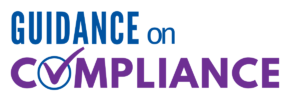I am an unabashed fan of podcasts. My weekly roundup includes nearly two dozen shows. I listen to them while I walk, while I work, and while I relax. It is certainly safe to say that I listen to more podcasts than I have ever watched television.
One of my favorite series is “The Uncertain Hour.” It is an investigative journalism podcast, where the creators take a deep dive into topics impacting our society. The latest season deals with the trend of businesses attempting to label employees as “1099 independent contractors” when they probably should not be. But, that is not the topic that really caught my interest.
Season 5, Episode 4 (available here) discusses the “liquid workforce.” This concept was developed by recruitment and placement professionals who were looking for a better phrase than “temp worker” or “outplacement.”
Today, more than ever, businesses are relying on these services to fill roles that they do not want to pay a full-time staff member to do. Janitorial services are high on the list, but so are logistics, IT, and yes… even healthcare roles. Where these jobs might have once been “in-house” positions, businesses have realized that outsourcing them can be both cost efficient and productive.
In the grand scheme, it makes sense. If you are operating a financial technology firm, you do not want to have to spend your budget dollars and management time on a janitorial employee. You can just hire a service for that. Similarly, if you are an apparel company, with a core competency of making great, fashionable clothes, it might not be in your best interest to spend money and time on learning logistics. This is the very reason for the rise of “drop ship” apparel businesses like Zazzle and TeePublic. Each part of the business can spend time on what it does best rather than trying to learn and apply something new.
This trend is now hitting healthcare, especially in an era of real estate investment trusts, venture capital groups, and equity financing opportunities. Organizations are taking a hard look in the mirror and deciding what their core competencies are.
Take for instance, luxury continuing care retirement community (CCRC) providers. Sure, by their very nature they provide some level of healthcare. Yet, when you look at their financials, their revenue is generally derived from the independent living side of the business. If you take a moment to think about this, their core competency may not be healthcare at all. Rather, they might just be a real estate business with a healthcare division.
So, what’s an organization to do? That’s where the liquid workforce and outside consultants come in handy; it all boils down to that value proposition. These flexible “non-employees” provide a tangible value to business executives. They allow them to concentrate on what they do best, while outsourcing the rest. In a field as complex as healthcare, this may seem like a far-fetched proposition. But, every day, LWCI assists clients in performing mission critical tasks that don’t require a full time, dedicated employee. These tasks include audits, reimbursement analysis, documentation review and management, process improvement initiatives, and more.
The aforementioned podcast also made an interesting prediction. Someday soon we may see a large, multi-national business that only consists of a full-time C-suite. Every other function in the company could be outsourced. Will that organization be successful? Only time will tell, but it is surely a model that someone is going to try.
As a marketer who supports consultants, this conversation interests me. Organizations usually hire our team to assist them in saving money (whether in the moment, or in the future through the avoidance of fines and penalties) or to help them avoid risk (through audits, reviews, etc.) As the outsourcing model continues to grow, so will our opportunity to support organizations with our core competencies.
For years, consultants were thought of with a bit of derision – “what does a consultant do, anyway?” Now, they are poised to make up a large part of the workforce. The very idea of what a consultant does is changing. How is your organization poised to take advantage of this trend?
LW Consulting, Inc. (LWCI) offers a comprehensive range of services that can assist your organization in maintaining compliance, identifying trends, providing education and training, or conducting documentation and coding audits. For more information, contact LWCI to connect with one of our experts!


